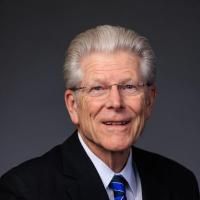Student Learning Dispositions: Multidimensional Profiles Highlight Important Differences among Undergraduate STEM Honors Thesis Writers.
Date
2019-06
Editors
Journal Title
Journal ISSN
Volume Title
Repository Usage Stats
views
downloads
Citation Stats
Abstract
Various personal dimensions of students-particularly motivation, self-efficacy beliefs, and epistemic beliefs-can change in response to teaching, affect student learning, and be conceptualized as learning dispositions. We propose that these learning dispositions serve as learning outcomes in their own right; that patterns of interrelationships among these specific learning dispositions are likely; and that differing constellations (or learning disposition profiles) may have meaningful implications for instructional practices. In this observational study, we examine changes in these learning dispositions in the context of six courses at four institutions designed to scaffold undergraduate thesis writing and promote students' scientific reasoning in writing in science, technology, engineering, and mathematics. We explore the utility of cluster analysis for generating meaningful learning disposition profiles and building a more sophisticated understanding of students as complex, multidimensional learners. For example, while students' self-efficacy beliefs about writing and science increased across capstone writing courses on average, there was considerable variability at the level of individual students. When responses on all of the personal dimensions were analyzed jointly using cluster analysis, several distinct and meaningful learning disposition profiles emerged. We explore these profiles in this work and discuss the implications of this framework for describing developmental trajectories of students' scientific identities.
Type
Department
Description
Provenance
Citation
Permalink
Published Version (Please cite this version)
Publication Info
Dowd, Jason E, Robert J Thompson, Leslie Schiff, Kelaine Haas, Christine Hohmann, Chris Roy, Warren Meck, John Bruno, et al. (2019). Student Learning Dispositions: Multidimensional Profiles Highlight Important Differences among Undergraduate STEM Honors Thesis Writers. CBE life sciences education, 18(2). p. ar28. 10.1187/cbe.18-07-0141 Retrieved from https://hdl.handle.net/10161/20429.
This is constructed from limited available data and may be imprecise. To cite this article, please review & use the official citation provided by the journal.
Collections
Scholars@Duke

Robert J. Thompson
My research and teaching interests include how biological and psychosocial processes act together in human development and learning. One area of focus has been on the adaptation of children and their families to developmental problems and chronic illnesses, including sickle cell disease and cystic fibrosis. Another area of focus is enhancing undergraduate education through scholarship on teaching and learning and fostering the development of empathy and identity.

Julie Reynolds
Julie Reynolds has a Ph.D. in biology but, through a series of unexpected events, became an expert in writing pedagogies. She spent 5 years learning to teach writing as a postdoctoral fellow in Duke University’s first-year writing program before transitioning to the biology department where she has taught science writing and writing-intensive courses to thousands of undergraduates and graduate students. With over a decade of funding from the National Science Foundation, her disciplinary-based education research has focused on how writing assignments can promote deep, conceptual learning, especially in large science courses. Dr. Reynolds is also a writing coach and has helped hundreds of scientists across the country to increase their productivity while reducing stress associated with writing.
Unless otherwise indicated, scholarly articles published by Duke faculty members are made available here with a CC-BY-NC (Creative Commons Attribution Non-Commercial) license, as enabled by the Duke Open Access Policy. If you wish to use the materials in ways not already permitted under CC-BY-NC, please consult the copyright owner. Other materials are made available here through the author’s grant of a non-exclusive license to make their work openly accessible.
